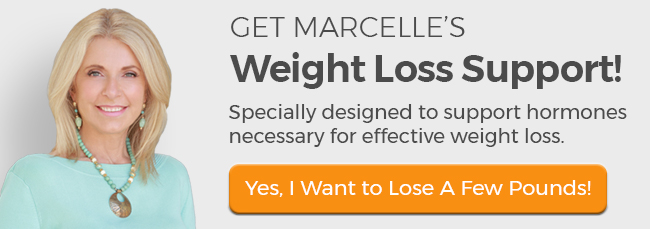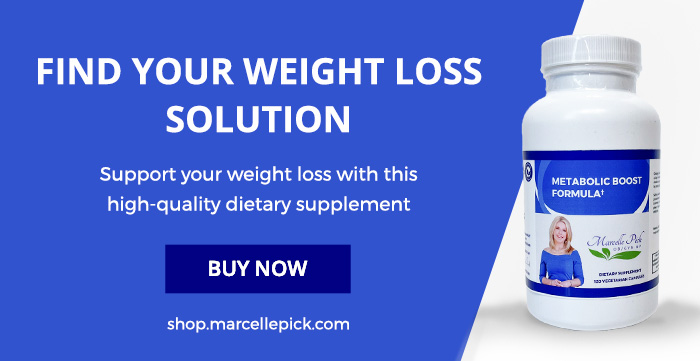Updated 10/23/2022
“I feel so lost at the grocery store,” my patient, Brenda, told me. She wanted to eat healthy. And for the most part, she felt like she did. But sometimes– especially when she went food shopping– she got confused.
“What ratio of vegetables to fruits should I be putting in my cart? How much fish? How many grains? Are potatoes healthy? Are they okay? What about dates, are they superfoods? Or are they too high in sugar?”
At this point, I (politely) stopped her. Because I completely understood where she was getting tripped up. And I wanted to share some perspective that would really help her.
That perspective, which I’ve shared with countless patients besides Brenda and which I want to share with you now, is that healthy eating is not just about what you eat.
I can’t tell you how many times I’ve heard from my patients that they have no idea what to believe about what healthy eating really means.
And who can blame them? There’s information everywhere — on headlines and in news broadcasts, on social media and on magazine covers in the checkout line at the supermarket.
It seems like everywhere you turn, someone has something to say about healthy eating habits. But the information is far from definitive — and it seems to change at a moment’s notice.
That leaves women with a lot of questions about what to do to achieve optimal health. They come in asking questions just like Brenda:
“Should I eat eggs or not? Are fats to be avoided, or do I need them? What effect does sugar have on my body? Is coffee okay, or do I have to give it up? What about gluten — is going gluten-free just a fad, or is there a good reason to jump on that bandwagon?”
When you’ve decided to commit to a healthier lifestyle, you are hungry for information. But when the answers you find are different depending on who you ask, it’s easy to become confused and frustrated.
The truth is, what works best for you won’t work best for someone else, so the question, “is this food healthy?” often can’t be answered by a simple “yes” or “no”. And that’s where a broader question becomes much more helpful: “how healthy are my eating habits?”.
With that in mind, let’s jump into my top 5 healthy eating habits, and how to move past the confusing details in order to see the big picture when it comes to both food and health.
Where Does Healthy Eating Habit Confusion Come From?
In May of 2017, the International Food Information Council Foundation’s annual Food and Health survey showed that approximately 8 out of 10 respondents said they have found conflicting information about what to eat and what to avoid. More than half said that conflicting information made them think twice about the choices they make.
I hear the same thing from my patients. There are so many different diets and nutrition plans out there, all claiming to be the healthiest way to eat. And then there’s the research, and constantly changing guidelines from the USDA. It really is difficult to know what to believe.
It doesn’t help that the media, in many cases, blows research findings about the healthiness (or lack thereof) of certain foods way out of proportion.
An epidemiological study finding a very slim association between coffee consumption and longevity might lead to headlines that read “drinking six cups of coffee a day is the key to a longer life”. A study finding a slim association in the opposite direction might lead to a headline suggesting that your moderate caffeine intake will kill you! And of course, neither situation is true.
These kinds of studies don’t (and can’t) show that the consumption of a food or drink is the cause of a health outcome. Beyond that, the improved or worsened health measures are usually very small in percentage size, and they often don’t take into account other variable factors that could account for someone’s health status.
None of that is to say there’s anything wrong with these studies themselves– but rather that, especially for people who aren’t scientific researchers, it can be difficult to parse out the true effects of a single food. And that’s okay– because what’s really effective is to look at the big picture when it comes to the way you eat.
Looking at the Big Picture
The reality is that information is becoming available all the time, thanks to ongoing research. But this research isn’t always as helpful as it seems. The kind of long term studies that would really let us know what happens to our bodies when specific things are consumed over time are prohibitively expensive and cumbersome.
On top of that, you have to carefully examine where research is funded. Studies that are funded by an industry that has a lot to lose (sugar or beef, for instance) may not produce the most reliable data.
Additionally, research that focuses on just one nutrient or one food misses the bigger picture. After all, I don’t think anyone believes that if you eat nothing but organic carrots you’ll be in good health.
You have to pay attention to your overall eating habits. Are you eating healthy meals most of the time? Are you including all of the essential food groups? How do your portion sizes look? Do you eat a variety of foods, or fall back on the same old favorites? What you eat over time is going to have a much bigger impact on your health than whether or not you eat one slice of cake.
Healthy Eating Habits and Weight Loss
It’s important, also, to remember that healthy eating habits can help you maintain a healthy weight, but it’s not the only piece of the puzzle. If your impetus for learning which foods are healthier is to manage your weight, you need to be sure you’re looking at your overall health habits – including physical activity and other lifestyle choices – as well.
I’ve seen so many women yo-yo dieting, trying every new plan that hits the news, and getting more and more frustrated when these purported healthy ways of eating don’t help them lose weight. This bouncing from plan to plan can leave you confused and obsessive about food, rather than building healthy habits.
The truth is there is value in some of these eating plans – the ones that take us back to basics, focusing on eating natural, whole foods. Good nutrition isn’t just about weight loss. Evaluating your body’s reaction to the foods you are eating and recognizing the benefits of eating more like our ancestors did can be beneficial. How you feel is so much more important than being a specific size.
There may be no absolute truth about which foods are the healthiest, particularly when you take into account the individual needs of each person. I know that for me, eating lower fat is the way to go. I had my genetic profile done and this is the best formula for me but I am in the minority.
That also doesn’t mean I don’t recognize the essential nutrients in healthy fats like wild-caught fish, avocados, nuts and seeds, and extra virgin olive oil or coconut oil. It just means that I have to be more careful about how much of these things I consume to maintain the weight I’m most comfortable at. You need to find out what works for you. Let’s look at a few helpful hints on how to do that.
5 Healthy Eating Habits
With such a wide range of information available, what can you do to make sure you are eating the best way you can for your life? Here are 5 tips on building healthy eating habits that go beyond which specific foods you consume.
1. Pay Attention to How You Feel After Eating
Listening to your body is one of the most important things you can do, and it’s something that often gets lost in all of the talk about what’s healthy and what’s not.
Certain things, like sugar or processed foods, are objectively unhealthy. But there are far more foods for which it completely depends on the person.
Food sensitivities can be subtle, and you might have been living with the effects for so long that you don’t even recognize certain foods are making you feel lousy. The best way to determine if you should eliminate a common food sensitivity culprit – like gluten, dairy, eggs, corn or soy – is to try an elimination diet. Cut out the foods you are wondering about, then add them back in slowly, one at a time if you dropped multiple things at once. Check for reactions as you reintroduce these foods.
2. Choose Whole, Unprocessed Foods Whenever Possible
Instead of focusing on whether or not eggs are healthy, look at the big picture and choose whole, nutrient-rich foods. Processing strips food of much of its nutritional value, so it’s best to choose foods that are minimally processed. Processed foods also often include ingredients that add toxins, disguised as flavor. If you can’t pronounce what you read on the food labels, it’s probably best to avoid the product. Whole foods also won’t have the added sugar that shows up in so many processed foods.
Buying locally means your food won’t need preservatives to help it travel well. Convenience isn’t worth failing health – stick to the fruits, vegetables, nuts and lean natural meats, organic when possible, that are closer to what our ancestors ate.
3. Cook from Scratch
I know that preparing food can feel like a daunting task, but there’s no reason it has to be. It really doesn’t take long to chop up fresh vegetables and stir fry them in some coconut oil. There are plenty of quick and easy recipes online, and each of my books has a collection of recipes that can be prepared in 30 minutes or less. If you’re pressed for time on weeknights, do some prep work on the weekends, or invest in an air fryer or slow cooker. However you choose to prepare the food, focus on nutrient rich ingredients that will leave you marveling at how flavorful real food can be.
Remember, this isn’t to say that you should never give yourself a break or go out to eat with your friends or family. We want to focus on the big picture– how you’re eating most of the time.
4. Don’t Avoid Fat — Just Choose the Right Type
Fat has a bad reputation, but all fats are not created equal. Sure, it’s best to avoid trans fat altogether and limit the amount of saturated fat you consume, but unsaturated fats have numerous health benefits. If you avoid all fats it’s pretty likely that you’ll be left feeling hungry all the time – and you’ll be missing essential nutrients your body can’t make. Avocados, nuts, salmon, and coconut or olive oil can give you the omega-3s you need, while also leaving you feeling full and satisfied.
5. Consider Supplemental Support
Modern farming practices, depleted soil, and environmental toxins make it increasingly difficult to get all of the nutrients your body needs from food alone. And if you are trying to make your way to healthier food after years of consuming mostly processed products, you may need some help to keep you feeling your best. My Multi Essentials vitamin and mineral blend can provide a daily dose of what you need most. With all the modern stressors and environmental toxins we are exposed to, a little extra support goes a long way!
Healthy Eating Habits Can Lead You to a Balanced Lifestyle
You don’t have to feel like you’re drowning in a sea of information. Focus on your overall habits, and follow how you feel. It doesn’t matter what the headlines say if a supposedly healthy choice leaves you feeling lousy! Don’t look for easy answers or a quick fix — the best things in life take time, and that includes finding eating patterns that work for you. And once you do, I think you’ll find you feel so great, sticking to it will be a breeze!










